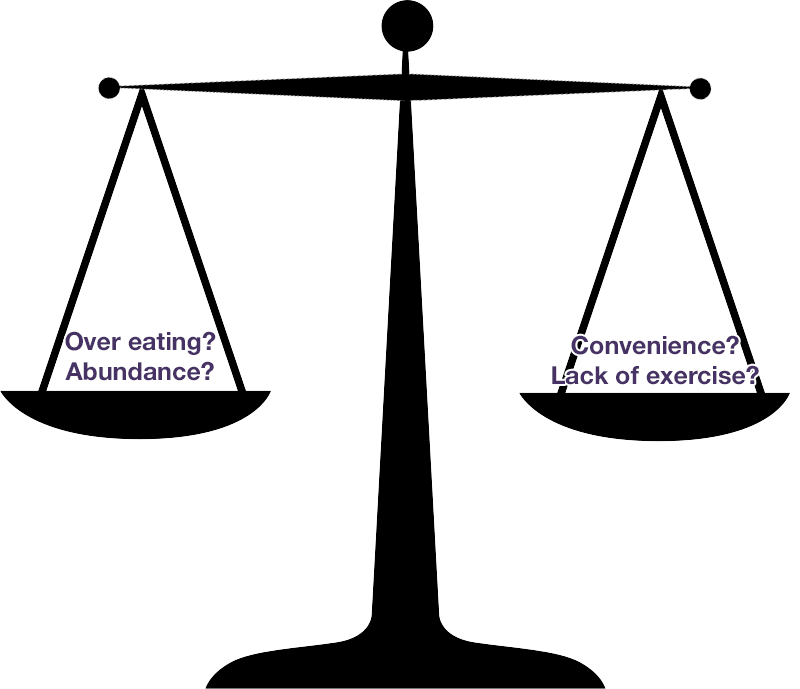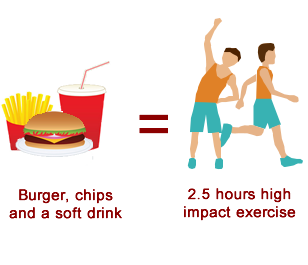Causes of obesity
In its most basic form, obesity is caused by an imbalance of energy in (food and drink) and energy out (basal metabolic energy consumption and exercise).
Drag the slider to tip the scales to indicate which you think is more closely associated with weight gain, or whether you think the two are equally linked to weight gain and then click submit to see some discussion:

Explanation of causes
Click on each of the reasons below to see more information.
Biomedical reasons
- Conditions: polycystic ovarian disease, hypothyroidism
- Medication: antipsychotics, antidepressants, insulin
- Genetics: differences in appetite and impulse control
Socio-cultural and environmental reasons
For many people food is a central part of socialisation, and rejecting food is rejecting generosity. For other people there may be status attached to weight, for example, HIV is known as the ‘slim disease' across much of Africa.
There have always been psychological and biomedical reasons for obesity, however these have not changed dramatically over time. The change that correlates most closely with the current obesity epidemic is environmental, with the availability of cheap calorie dense prepared food, that is high on flavour (salt, fat and sugar) and low on nutritional value.
- Availability of cheap, calorie-dense, fast food
- Food as an expression of care and generosity
- Weight as an expression of health and wealth
Read more about poverty and obesity.
Psychological reasons
It is important however to distinguish between what may be simply a natural reaction to abundance and convenience from the rarer biomedical and psychological causes of obesity. We know that a history of trauma and emotional withdrawal is associated with binge eating disorder, and that there is an association between food insecurity and obesity.
- History of abuse
- Eating disorders
- Food insecurity
Read more about sexual abuse and obesity.
We could extend this discussion to include many more issues such as perceived social norms, cost benefit, behavioural control, food insecurity, facilities and abilities, time, convenience, long working hours, single parenting, depression, lack of purpose and food as expression of care. For a comprehensive review, see the Foresight Report.



